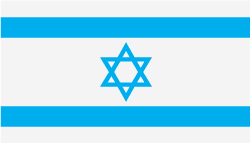Planning for Deposition Travel in Israel
The International Team at Planet Depos regularly handles deposition travel to Israel. and is happy to share our top travel tips.
Entry Requirements for Israel
For more information, you can also contact the Israeli Embassy (3514 International Dr NW Washington DC 20008)
Flying to Israel
- Ben Gurion International Airport (TLV) – Tel Aviv (http://www.telaviv-airport.com/)
Major airlines offering non-stop flights from the U.S. to Israel include:
Travel in Israel
You can also download the SmartTravel App for your smartphone created by the U.S. Department of State.
Staying in Israel
There are several locations where U.S. depositions may be taken in Israel. For example, major cities Jerusalem and Tel Aviv offer many luxury hotels to choose from for your lodging and conference room needs. We are more than happy to assist you with your conference room needs and hotel recommendations.
Medical Information for Israel
There are several medical facilities throughout Israel, most of which are English-friendly. For more medical information, please go to:
https://il.usembassy.gov/u-s-citizen-services/
For updated health information, including health travel alerts and immunizations, please visit Israel specific website for the Centers for Disease Control and Prevention.
Money Matters
Israel’s currency is the Israeli New Shekel. However, the U.S. dollar is accepted in places accustomed to dealing with tourists. You can change money with more convenience at licensed exchange booths in shopping centers than at a bank, which will charge a commission.
Major credit cards – American Express, Diners, Visa, MasterCard – are widely accepted in Israeli restaurants, hotels, and stores. You can also withdraw local currency at banks which accept your credit card. ATMs are widely available.
For up-to-date information on the local conversion rate, please visit a reputable currency converter website such as http://www.oanda.com/currency/converter/, which also offers an app for smartphones.
Weather
Israel summers (April-October) are typically warm and dry with temperatures in the 80’s or 90’s, while winters (November-March) are relatively mild, with temperatures ranging in the 50’s-60’s. Regional conditions do vary. For example, summers are more humid on the coast while winters in the mountainous region are colder and include the occasional snowfall. Spring and autumn see sporadic hot winds which cause temperatures to skyrocket, but for the most part are extremely pleasant, with temperatures in the 60’s-70’s.
Important Websites & Resources
Interesting Israel Fact
Israel’s banknotes have Braille markings on them so the blind can easily identify them.

